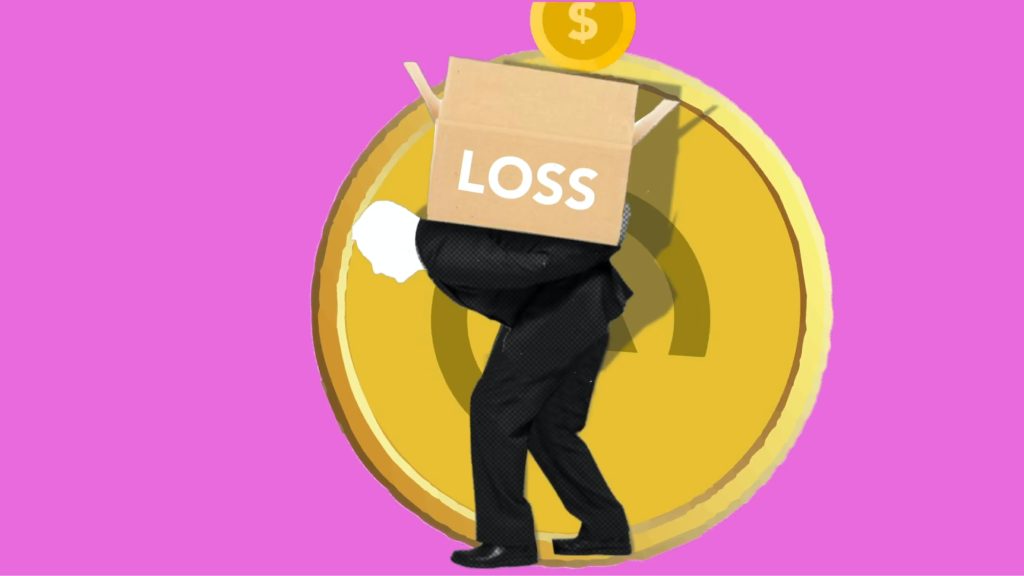Recessions are a common occurrence in the economy, and they can have significant impacts on individuals, businesses, and the overall economy. In this article, we will explore what a recession is, the impacts it has on individuals and the economy, and what can be done to mitigate these negative effects.
What is a recession?
A recession is a period of significant economic decline, typically characterized by a reduction in Gross Domestic Product (GDP), employment, and income levels. Recessions are often triggered by a variety of factors, including declining consumer spending, reduced business investment, changes in government policy, and global economic events.
Recession: Impacts on individuals

A recession can have a significant impact on individuals in various ways, such as:
Job Loss:
During a recession, many companies may struggle, resulting in layoffs and job losses. This can lead to financial instability, inability to pay bills, and other economic difficulties.
Reduced Income:
People who lose their jobs may experience reduced hours or lower wages, leading to a decrease in their income. This can cause difficulty in meeting financial obligations, including rent, mortgages, and other bills.
Decreased Savings:
A recession can also lead to a reduction in savings for individuals. With reduced income, individuals may be forced to dip into their savings or stop contributing to their retirement funds.
Increased Debt:
During a recession, individuals may resort to taking out loans or relying on credit cards to make ends meet, leading to an increase in debt. High-interest rates on loans and credit cards can further compound financial difficulties.
Mental Health:
Financial difficulties resulting from a recession can also have an impact on mental health. Stress, anxiety, and depression may arise due to job loss, reduced income, and financial instability.
Health Care:
During a recession, individuals may lose their health insurance or may not have access to affordable healthcare. This can make it difficult for individuals to manage chronic illnesses or access healthcare in times of need.
Overall, a recession can have significant impacts on individuals’ financial, physical, and mental health, which is why it is crucial for governments and individuals to take appropriate steps to mitigate its effects.
Recession: Impacts on the economy

Recessions can have significant impacts on an economy, including
Increased Unemployment:
During a recession, companies may cut back on jobs or even shut down, leading to increased unemployment rates. This can cause a decrease in consumer spending and a further decline in the economy.
Decreased Economic Growth:
Recessions can lead to a reduction in economic growth, as businesses may cut back on investments and consumers may reduce their spending. This can lead to a decrease in gross domestic product (GDP) and a slowdown in economic activity.
Reduced Consumer Confidence:
During a recession, consumers may become more cautious with their spending, leading to a decrease in consumer confidence. This can lead to a further reduction in economic activity and a prolonged recession.
Decline in Stock Markets:
A recession can cause stock markets to decline, leading to a decrease in the value of investments and retirement accounts. This can cause individuals to reduce their spending, further exacerbating the economic downturn.
Government Deficits:
During a recession, increase income tax, government revenues may decline, while spending on social safety net programs may increase. This can lead to a budget deficit, which can further slow down economic growth.
Covid-19 Pandemic Recession in UK

The COVID-19 pandemic had a significant impact on the UK economy, leading to a recession in 2020. In the first quarter of 2020, the UK economy contracted by 2.5%, and in the second quarter, it contracted by a record-breaking 19.8%. However, since the third quarter of 2020, the UK economy has been slowly recovering.
The UK government implemented a range of measures to support businesses and individuals during the pandemic. These measures included the furlough scheme, which provided financial support to employees who were unable to work, and the self-employment income support scheme, which provided financial support to self-employed individuals.
Despite these measures, many businesses have struggled during the pandemic, and some have closed permanently. Unemployment has increased, and there are concerns about the long-term impact of the pandemic on the UK economy.
As of 2021, the UK economy has shown signs of improvement, with growth in GDP in the third quarter of 2021. However, there are still challenges ahead, including rising inflation and ongoing uncertainty around the pandemic and its impact on the economy.
The UK government continues to implement policies to support businesses and individuals during the pandemic, including further support for the furlough scheme and the introduction of new measures to support businesses affected by COVID-19 restrictions. The future trajectory of the UK economy will depend on a range of factors, including the continued rollout of vaccines, the impact of inflation, and global economic conditions.
History of Recessions in United Kingdom

The UK has experienced several recessions throughout its history, with some of the most significant ones being:
The Great Depression (1929-1932):
This was a severe worldwide economic depression that started in the United States and quickly spread to the UK. The depression led to high levels of unemployment, with more than three million people out of work in the UK by 1932.
The Post-World War II Recession (1945-1947):
After the end of World War II, the UK experienced a severe recession due to the decline in military spending and the shift towards peacetime production. This led to high unemployment and a decline in economic growth.
The Oil Crisis Recession (1973-1975):
This recession was caused by the OPEC oil embargo and resulted in a sharp rise in oil prices. The UK experienced high inflation, high unemployment, and a decline in economic growth during this period.
The Early 1990s Recession (1990-1992):
The early 1990s recession was caused by a combination of factors, including high interest rates, a housing market crash, and a decline in consumer spending. The recession led to high levels of unemployment and a decline in economic growth.
The Global Financial Crisis (2008-2009):
The global financial crisis, which was caused by a collapse in the US housing market and the failure of several major banks, led to a severe recession in the UK. The recession led to high levels of unemployment and a decline in economic growth.
Mitigating the impacts of a recession
Governments and central banks can take various measures to mitigate the negative impacts of a recession. Fiscal policies such as stimulus packages can inject money into the economy and create jobs. Monetary policies such as reducing interest rates can encourage borrowing and investment, stimulating economic activity.
Individuals can take steps to mitigate the impacts of a recession, such as reducing debt levels, building up savings, and developing new skills that can increase employability.
Conclusion
In summary, recessions can have significant impacts on individuals, businesses, and the overall economy. By understanding the causes and impacts of recessions, individuals and policymakers can take proactive steps to mitigate these negative effects. Governments and central banks can implement fiscal and monetary policies to stimulate economic activity, while individuals can reduce debt levels, build up savings, and develop new skills. By working together with a Expert advisor, we can ensure that the impacts of recessions are minimized, and the economy can recover quickly.
Let unite to mitigate recession impact and propel swift economic recovery. For more information, reach out to us at info@wesavepropertytax.com or give us a call at 0203 9960 999.
Frequently Asked Question
During a recession, the UK economy can experience rising unemployment, decreased consumer and business spending, and reduced economic output. This can lead to lower tax revenues, increased government borrowing, and other economic challenges.
The causes of a recession can be complex and multifaceted, but they often include factors such as global economic conditions, changes in interest rates or monetary policy, shifts in consumer behavior, and other macroeconomic factors.
There are several steps that individuals and businesses can take to prepare for a recession, such as reducing debt, increasing savings, and exploring new revenue streams or cost-cutting measures.
The UK government may respond to a recession with various policy measures, such as fiscal stimulus packages, monetary policy adjustments, or regulatory changes designed to promote economic growth and stability.









